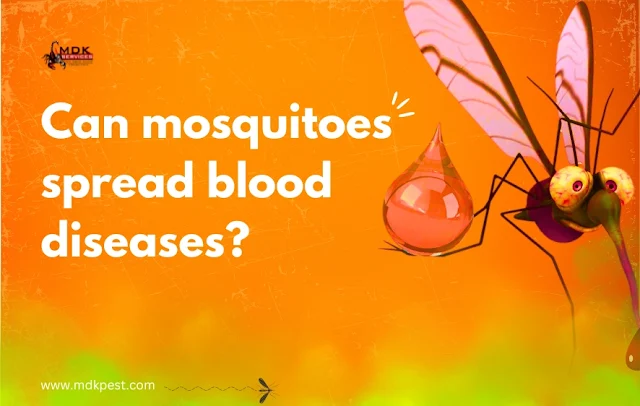Mosquitoes aren't merely bothersome insects; they can also carry various blood-borne diseases that pose significant risks to human health. In this detailed exploration, we investigate the question: Do mosquitoes transmit blood diseases? Let's explore the scientific mechanisms behind mosquito-borne illnesses and their transmission to humans.
Understanding Mosquito-Borne Diseases
What Are Blood Diseases Spread by Mosquitoes?
Mosquitoes are vectors for several dangerous blood-borne pathogens, including malaria, dengue fever, Zika virus, chikungunya, yellow fever, and West Nile virus. These diseases are caused by parasites, viruses, or bacteria that can infect humans through mosquito bites.
Malaria
Malaria, caused by the Plasmodium parasite, is one of the most prevalent mosquito-borne diseases globally. Anopheles mosquitoes transmit this disease, and it can lead to severe illness and even death if left untreated.
Dengue Fever
Dengue fever, transmitted by Aedes mosquitoes, is a viral infection characterized by high fever, severe joint pain, and potentially life-threatening complications like dengue hemorrhagic fever.
Zika Virus
Zika virus, primarily spread by Aedes mosquitoes, gained significant attention due to its association with birth defects such as microcephaly in babies born to infected mothers.
How Do Mosquitoes Transmit Blood Diseases?
Mosquitoes become carriers of blood-borne diseases when they feed on infected hosts, such as humans or animals. The pathogens multiply within the mosquito's body and can then be transmitted to new hosts through subsequent bites.
Transmission Process
Feeding: An infected mosquito bites a human, introducing the pathogen into the bloodstream.
Pathogen Multiplication: The pathogen replicates within the mosquito's body.
Subsequent Bites: When the infected mosquito bites another human, it can transmit the pathogen, initiating infection.
Preventing Mosquito-Borne Diseases
Effective Strategies for Mosquito Control
To mitigate the spread of blood diseases by mosquitoes, proactive measures are essential. Here are some effective strategies:
- Eliminate Breeding Sites
- Remove standing water where mosquitoes breed, such as in flower pots, gutters, and bird baths.
- Keep water storage containers tightly covered.
- Use Mosquito Repellents
- Apply insect repellent containing DEET, picaridin, or oil of lemon eucalyptus to exposed skin.
- Use mosquito nets while sleeping, especially in areas prone to malaria.
- Install Screens and Nets
- Use screens on windows and doors to prevent mosquitoes from entering homes.
- Sleep under mosquito nets, particularly in regions with high mosquito activity.
Conclusion
Mosquitoes can indeed spread blood diseases, posing significant public health risks worldwide. Understanding the transmission of these diseases and implementing effective preventive measures is crucial for protecting individuals and communities from mosquito-borne illnesses.
Are you concerned about the threat of mosquito-borne diseases in your community? Look no further than MDK Services in San Angelo, Texas, your trusted partner in mosquito control and prevention. Their expert team at MDK Services is dedicated to safeguarding individuals and communities from the risks associated with blood diseases spread by mosquitoes. With a comprehensive understanding of mosquito-borne illnesses like malaria, dengue fever, and Zika virus, they offer effective strategies to eliminate breeding sites, use repellents, and install screens to protect your loved ones. Contact MDK Services at +1(325) 658-3498 today for proactive mosquito control solutions tailored to your needs. Let us help you create a safer environment and enjoy the outdoors without worry.







.jpg)





0 coment�rios: